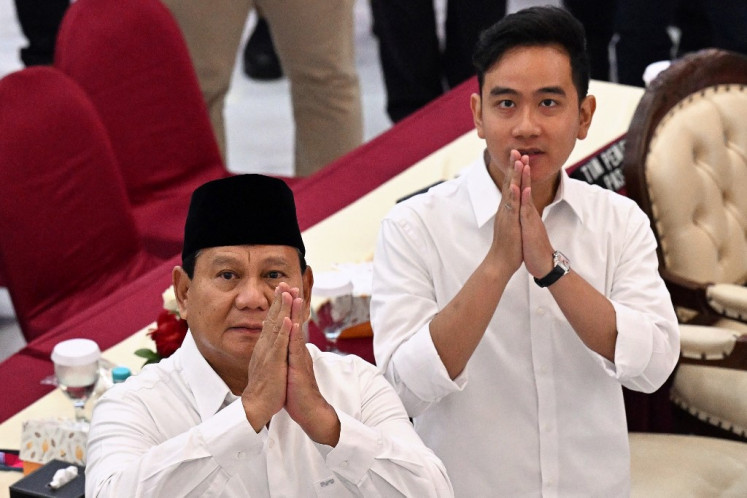Govt fails to reform agencies, laws to protect human rights
After 12 years of reform following the fall of Soeharto in 1998, Indonesia still faces many barriers in its efforts to uphold human rights, observers say
Change Size

A
fter 12 years of reform following the fall of Soeharto in 1998, Indonesia still faces many barriers in its efforts to uphold human rights, observers say.
Policy Research and Advocacy (ELSAM) director Agung Putri said Thursday that the government's efforts to reform its law and human rights enforcement agencies had stagnated due to the poor rollout of human rights-related programs.
She cited research conducted by SETARA Institute, which showed that the government executed only 56 of the 103 programs, or 58 percent, stipulated in the 2004-2009 human rights national action plan.
"The blueprint of human rights enforcement programs is good, but the implementation is poor," she said.
To date, the government has not ratified the UN International Convention on the Protection of the Rights of All Migrant Workers and Members of Their Families, which was scheduled for ratification in 2005, and the Optional Protocol to the UN Convention against Torture and the Rome Statute, which were scheduled for ratification in 2008.
Putri said the poor performance of two key law and human rights enforcement agencies - the National Police and the Attorney General's Office - made some human rights violation cases difficult to solve.
An ELSAM human rights review showed that police often ignored human rights issues when dealing with criminals, as evidenced in their shoot-on-sight policy in recent terrorist raids across the country.
"If the police maintain that policy, it could lead to excessive human rights violations," Putri said, adding that the police should be more transparent when conducting counter-terrorism operations.
She suggested that the National Commission on Human Rights set out guidelines for the police to minimize the possibility of human rights violations in their operations.
Putri said that of all the law enforcement agencies, the AGO had the worst performance.
To date, the AGO has not processed the National Commission on Human Rights investigation results on seven key human rights violation cases: the Trisakti University students deaths, the Semanggi I and II incidents, the May 1998 riots, forced kidnappings and the Talangsari, Wamena and Wasior incidents.
The ELSAM report says that among the reasons used by the AGO to halt the cases were lack of sufficient evidence, sub-standard dossiers and lack of legal bases.
In 2009, the report said, the AGO also banned five books it considered threatened public order.
"The AGO has disappointed the public. In the last five years, it has failed to realize its human rights programs," Putri said.
She also criticized the National Commission on Human Rights for its incapability to lobby the President, the police, the AGO and the House of Representatives to solve the cases.
"In 12 years of reform, the coordination between law enforcement agencies has been very weak," she said. (rdf)









